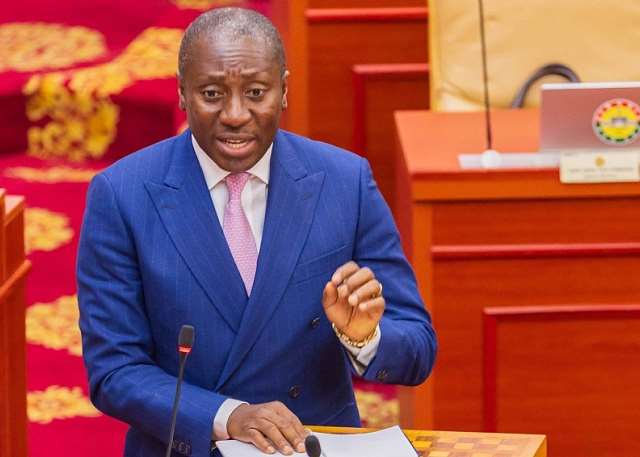The Minority Leader in Parliament, Alexander Afenyo-Markin, has sounded the alarm over the growing public health crisis posed by hepatitis in Ghana, urging a swift and coordinated national response to confront what he described as a silent epidemic threatening millions of lives.
Raising the issue on the floor of Parliament, Afenyo-Markin revealed that nearly four million Ghanaians could be unknowingly living with hepatitis, a disease that remains largely undetected due to limited access to healthcare, especially in rural communities.
“Globally, 304 million people are living with hepatitis, and the disease claims 1.3 million lives each year, mostly due to liver cancer and cirrhosis,” he stated, drawing attention to the global impact and its devastating consequences.
He stressed the urgent need to scale up public awareness campaigns, eliminate stigma surrounding the disease, and enhance early testing and treatment services.
“We must expand our healthcare infrastructure and strengthen our commitment to routine screening, education, and vaccination. Only then can we mitigate the devastating impact of hepatitis on our people,” Afenyo-Markin added.
Dr. Grace Ayensu Dankwa, responding to the Minority Leader’s concerns, backed the call for action and placed emphasis on widespread public education. She noted that many Ghanaians carry the virus without knowing it, and misinformation or lack of knowledge about the disease contributes to its rapid spread.
“Educating the public on how hepatitis B is contracted, how to prevent it, and the importance of early testing is the first and most powerful step toward reducing new infections,” she said.
Dr. Dankwa praised the government’s free primary healthcare initiative, especially the decision to incorporate hepatitis B vaccination, describing it as a vital step in closing healthcare gaps for vulnerable groups.
“The integration of hepatitis B vaccination into the national healthcare package will increase accessibility and protection, particularly for those in remote areas,” she added.
The Second Minority Chief Whip and Member of Parliament for Weija Gbawe, Jerry Ahmed Shiab, also endorsed the call for stronger hepatitis prevention efforts. He highlighted the importance of prioritising preventive healthcare over curative approaches and applauded those contributing to the national campaign.
He commended the initiative’s leader for making a personal commitment of one million cedis to support the effort, calling on others to do the same. His remarks underscored the importance of collective action in advancing healthcare and protecting lives.
All three lawmakers echoed the same message: tackling hepatitis requires a unified national strategy that prioritises education, early detection, widespread vaccination, and equitable access to medical care, especially in the country’s most underserved areas.


